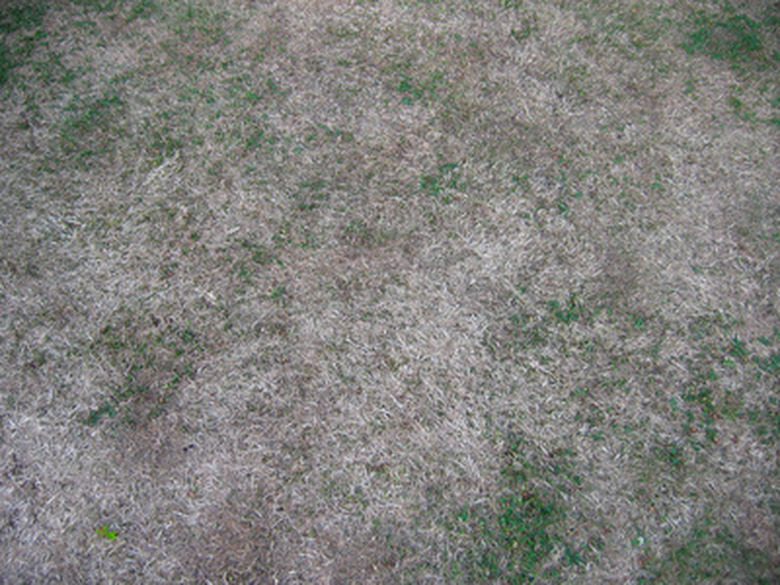How To Treat Lawn Grubs In Pennsylvania
Things Needed
- Insect parasitic nematodes
- Bacterial milky disease
- Insecticide
Grubs are a frequent and often severe problem in Pennsylvania lawns. In Pennsylvania, these grubs are most often the larva of Japanese beetles or Northern masked chafer grubs. Affected lawns become spongy in patches as their roots are gnawed away and layers of sod can be easily peeled away. The most visible signs of grub damage are patches of dead or dying grass that crop up in early summer or fall. The most extensive grub damage in Pennsylvania lawns takes place between May and June, which is also the best time to treat a lawn for grubs.
Step 1
Stop watering your lawn in July and August. This is the time when the grub's eggs are laid in your lawn. If they are not hydrated, they may die. However, be aware that when you stop watering your lawn, it will go dormant and turn brown until you water it again. But if you treat the grubs this way, you can skip chemical lawn treatments altogether.
- Grubs are a frequent and often severe problem in Pennsylvania lawns.
- The most extensive grub damage in Pennsylvania lawns takes place between May and June, which is also the best time to treat a lawn for grubs.
Step 2
Treat Japanese lawn grubs, one of the most common Pennsylvania lawn grubs, with bacterial milky disease. This product is readily available at many garden centers and can be sprinkled onto and watered into the soil according to the manufacturer's instructions. However, before you purchase this product, have a professional confirm that your lawn is indeed suffering from Japanese lawn grubs. Bacterial milky disease will not kill other species of grub. Bacterial milky disease will take 3 to 5 years to entirely kill your lawn's Japanese beetle population. However, it does allow you to avoid spraying your lawn with chemicals.
Step 3
Introduce Heterorhabditis spp., an insect parasitic nematode easily purchased online, to your lawn. Simply sprinkle them onto your lawn and then water it according to the package's directions. Be aware that the research results concerning the effectiveness of parasitic nematodes on lawn grubs has not been consistent, according to the agricultural experts at Pennsylvania State University. However, if the treatment is successful, you can avoid chemically treating your lawn.
- Treat Japanese lawn grubs, one of the most common Pennsylvania lawn grubs, with bacterial milky disease.
- However, before you purchase this product, have a professional confirm that your lawn is indeed suffering from Japanese lawn grubs.
Step 4
Treat your lawn with a preventative insecticide prescribed for use on lawn grubs. In Pennsylvania the best time to apply herbicides is between mid-June and mid-July when the Northern masked chafer and the Japanese beetle lay their eggs.
